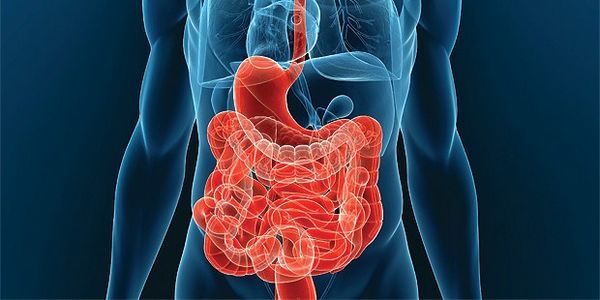Diarrhea – treatment of disease. Symptoms and prevention of Diarrhea Disease

Diarrhea – What is this disease? Diarrhea (diarrhea) -frequent liquid bowel movements watery kalovymi masses (3 or more times per day). Diarrhea is not a distinct disease, and symptom of different diseases.
Diarrhea – The cause of the
Causes of diarrhoea are dependent on its shape and type. Acute diarrhea caused by intestinal viral infection, bacterial or parasitic nature. Chronic diarrhea is accompanied by digestive diseases and lasted for more than 4 weeks.
Transmission of acute diarrhoea-faecal-oral. Common pathogens: Escherichia coli, salmonella, dysentery bacteria, Amoeba, Giardia.
Chronic diarrhoea manifested such gastrointestinal diseases: chronic pancreatitis, nespetsificheskiy yazvennыy colitis, Crohn's disease, psevdomembranoznыy colitis, intestinal tumor, celiac disease, non-infectious colitis. Also diarrhea could be caused by taking drugs, in particular, antibiotics.
Diarrhea may be accompanied by ARI, caused by adenovirus and rotavirus infections.
Functional diarrhea irritable bowel syndrome develops against the background of stress, depression. It was due to the violation of bowel motility.
Cause of diarrhea traveler is a change in diet, as the water, climate change, stresses. The appearance of this symptom is associated with water and food infections by microorganisms.
Any diarrhea is a clinical manifestation of malabsorption of water and electrolytes in the gut.
Diarrhea – Symptoms
The symptoms and severity of diarrhoea depend on its form, the type and quantity of pathogen, caused her disease, as well as the State of human immunity.
In acute diarrhea, provoked by e. coli, There is liquid stool to 10 once a day. It is accompanied by a moderate total intoxication, lower abdominal pain, false impulses to defecate.
In acute diarrhea, caused by salmonella and dizenterijnymi bacteria, frequent watery stool mixed with blood and PUs can be observed to 10-30 once a day. Sick torment of pain in the abdomen, nagging pain in the rectal area, concerned about false urge to defecate. The temperature rises up to 40 degrees. Observed tachycardia, xerosis.
Diarrhea, caused by parasitic pathogens, develops gradually and is accompanied by abdominal pain. Chair can be impurity of blood.
Traveler's diarrhea is manifested in the first two weeks after the departure in a foreign region and lasts no more than a week. Accompanied by nausea, vomiting, shvatkoobraznymi abdominal pain. Watery stools up to 10 once a day, normal body temperature.
Manifestations of chronic diarrhea depends on the type of gastrointestinal disease.
Diarrhea, associated with taking antibiotics, manifest shvatkoobraznymi abdominal pain, that stopped after copious watery stool. Symptoms disappear after the drug.
Diarrhea – Diagnostics
Take into account when making a diagnosis of clinical manifestations of diarrhea, the results of Bacteriological studies of feces, occult blood feces analysis, in dysbacteriosis, General blood analysis, biochemical analysis of blood.
These researches allow to identify the causative agent of disease, signs of acute or chronic inflammation, anemia, degree of dehydration.
With chronic diarrhea shows colonoscopy, rektomanoskopija to assess the availability of colon pathologies.
Evaluation of motor function of the intestine and the identification of organic changes it spend by using irrigoscopy.
To exclude liver disease, pancreas, tumors in the abdominal cavity and zabrjushinnom space conduct ULTRASOUND EXAMINATION of abdominal cavity organs.
Diarrhea – Types of disease
Diarrhea can be acute or chronic.
Distinguish 4 type of diarrhea depending on its mechanisms, flow and causes:
- Exudative diarrhea
- Secretory diarrhea
- Osmoljarnaja diarrhea
- Gipokineticheskaja diarrhea
Diarrhea – Actions of the patient
To the therapist, pediatrician or family physician need to immediately apply in the following cases:
- Diarrhea more 10 once a day
- Diarrhea in a child to 5 years and older adult 60 years
- Accompanied by fever
- There is blood in the stool, slime
- Chair rich, bright
- If you have diarrhea the body temperature become below normal, decreased blood pressure, worsened overall condition
Diarrhea – Treatment
Treatment depends on the type of diarrhea. Common therapeutic approaches: diet, the application of antibacterial drugs (furazolidon) and symptomatic remedies (adsorbents, astringents, overlying, antidiarrheal agents, such as Imodium and etc.). Effective Jenterofuril – intestinal antiseptic, non-antibiotic or Smectite – When treating chronic diarrhea. But do not take antidiarrheals acute intestinal infection and bloody diarrhea. Possible oral, nomalizujushhih intestinal microflora – chilak-Forte, etc.
Features of treatment of secretory diarrhea include rehydration, cholestyramine, secretion inhibitors.
When giperosmolarna diarrhea prescribed stimulants suction, with exudative – sulfasalazine, fat-Falk, corticosteroids. For the treatment of gipokineticheskoj diarrhea use motor controllers, psychotherapy.
Treatment of diarrhea is accompanied by treatment of the underlying disease.
Diarrhea – Complications
Diarrhea causes dehydration and against this background, the development of seizures and coma. Possible complications of diarrhea are infectious-toxic shock, sepsis, peritonitis.
With the untimely treatment, as well as in patients with immuno exodus of diarrhea may be adverse.
Diarrhea – Prevention
Prevention of diarrhea is the body's hygiene and nutrition. You must regularly and eat right. Wash your hands, to properly wash and process products, including fruit and vegetables. It is not recommended to drink raw water and eat from dubious products. Gently take medication, in order not to provoke a goiter. Lead a healthy lifestyle, avoid nerve overload.
